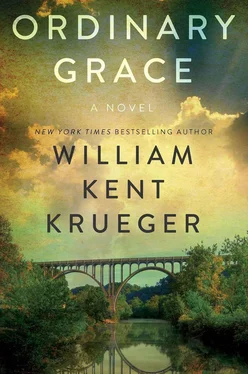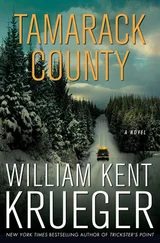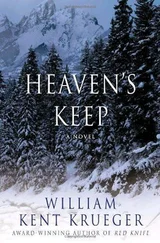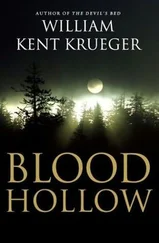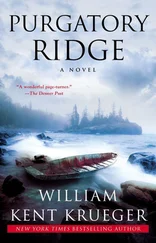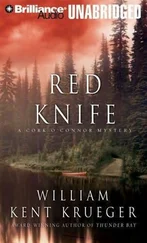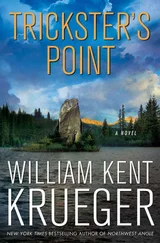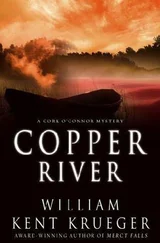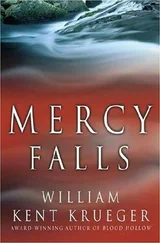William Krueger - Ordinary Grace
Здесь есть возможность читать онлайн «William Krueger - Ordinary Grace» весь текст электронной книги совершенно бесплатно (целиком полную версию без сокращений). В некоторых случаях можно слушать аудио, скачать через торрент в формате fb2 и присутствует краткое содержание. Жанр: Триллер, на английском языке. Описание произведения, (предисловие) а так же отзывы посетителей доступны на портале библиотеки ЛибКат.
- Название:Ordinary Grace
- Автор:
- Жанр:
- Год:неизвестен
- ISBN:нет данных
- Рейтинг книги:4 / 5. Голосов: 1
-
Избранное:Добавить в избранное
- Отзывы:
-
Ваша оценка:
- 80
- 1
- 2
- 3
- 4
- 5
Ordinary Grace: краткое содержание, описание и аннотация
Предлагаем к чтению аннотацию, описание, краткое содержание или предисловие (зависит от того, что написал сам автор книги «Ordinary Grace»). Если вы не нашли необходимую информацию о книге — напишите в комментариях, мы постараемся отыскать её.
Ordinary Grace — читать онлайн бесплатно полную книгу (весь текст) целиком
Ниже представлен текст книги, разбитый по страницам. Система сохранения места последней прочитанной страницы, позволяет с удобством читать онлайн бесплатно книгу «Ordinary Grace», без необходимости каждый раз заново искать на чём Вы остановились. Поставьте закладку, и сможете в любой момент перейти на страницу, на которой закончили чтение.
Интервал:
Закладка:
We left the shops behind and walked Main Street toward Tyler. The houses on the hills were old and many of them Victorian and, though the heavy curtains were drawn against the heat, every once in a while we caught the sound of a baseball game broadcast from the cool dark inside. We turned down Tyler toward the Flats. I could feel Jake’s anger hot as the concrete under our feet.
“Forget him,” I said. “He’s an asshole.”
“Don’t s-s-s-say that.”
“But he is.”
“That word I mean.”
“Asshole?”
Jake shot me a killing look.
“You shouldn’t let him get to you. He’s nobody.”
“Nobody’s n-n-nobody,” Jake said.
“Hell everybody’s nobody. And I know I said hell.”
Grain elevators rose beside the tracks on the Flats. Tall and white they were connected by catwalks and conveyor belts. There was a stark kind of beauty in the way they stood against the sky like sculptures made of bone. Next to them ran a siding where the hopper cars were rolled so they could be filled with grain but that afternoon the rails were empty and the elevators deserted. We strolled over the tracks at the crossing on Tyler. Jake kept walking toward home. I stopped and turned and began to follow my shadow stubby and black along the rails toward the east.
Jake said, “What are you doing?”
“What’s it look like?”
“You’re not supposed to play on the railroad tracks.”
“Not playing. Just walking. You coming or you going to stand there and cry?”
“I’m not crying.”
I walked a rail like a tightrope. Walked through waves of heat. Walked in the fragrance that rose up from the hot rock of the roadbed and the creosote of the crossties.
“And you’re not coming either,” I said.
“I’m coming.”
“Then come on.”
His shadow caught up with mine and he walked the other rail and together we walked out of the Flats and though we did not know it we were walking toward the second death that summer.
The valley of the Minnesota River was carved over ten thousand years ago by great floods released from the glacial Lake Agassiz which covered an area in Minnesota and North Dakota and central Canada larger than the state of California. The drain was called the River Warren and it cut deep and wide into the land through which it ran. What’s left now is only a wisp of that great river. In summer the land along its banks is green with soy beans and cornstalks and fields of rye that roll in the wind with the liquidity of an ocean. There are stands of old deciduous trees whose branches cup the nests of Forster’s terns and black terns and great blue herons and egrets and bald eagles and warblers and other birds so ordinary and profuse that they fill the air like dandelion fluff. The river runs nearly four hundred miles and it runs brown. It flows out of Lac qui Parle. The Lake That Speaks. At its end are the cities of Minneapolis and Saint Paul.
To this day for much of its length the river is shadowed by railroad. To a thirteen-year-old kid in 1961 that set of tracks seemed to reach to a horizon from beyond which came the sound of the world calling.
We walked to a place half a mile outside the Flats where a long trestle bridged the river. Wild rye and blackberry thickets and thistle grew to the edge of the railroad bed. Sometimes people fished from the trestle though it was a dangerous thing to do. This was where Bobby Cole had been killed.
I stopped and Jake said, “What do you want to do?”
“I don’t know.”
The truth was that I was looking for evidence of a thing I hadn’t considered before. Bobby Cole was not a fisherman and so to my mind he’d come there looking to eat the blackberries that were ripe or to sit on the trestle and watch the river run below and look for the carp and catfish and gar that sometimes broke the surface. That’s what I did there and Jake when he came with me. Or we’d toss a stick into the river and try to hit it with a harvest of rocks gathered from between the railroad ties. But Officer Doyle had speculated there was something more sinister in what happened to Bobby than just the tragedy of a boy too lost in his daydreams to hear the thunder of death approaching. That had me wondering.
Jake said, “Want to throw rocks?”
“No. Hush. Listen.”
From down the riverbank near the trestle came a snapping like the break of a million tiny bones. A large animal was forcing its way through the brush. We sometimes found places along the river where deer had bedded and the flattened vegetation still carried the outlines of their bodies. We didn’t move and our shadows roosted on the rails. From under a willow that overhung the bank and that was surrounded by bulrushes a man emerged plucking burrs from his clothing as he came. He seemed old to me because his hair was no longer black but the dull color of a long-circulated five-cent piece. He wore dirty khakis and a sleeveless undershirt and he swore at the burrs snagged in his clothing. He disappeared under the embankment where the rails crossed the river. I crept forward onto the trestle and knelt and peered down through the gap between the first two sets of crossties. Jake knelt beside me. Directly below us the man had seated himself on the dry clay of the riverbank and next to him was sprawled another man. The second man looked as if he was sleeping and the man who’d come from the bulrushes began going through the sleeping man’s pockets. Jake tugged at my sleeve and pointed back down the tracks indicating that he thought we ought to leave. I shook my head and returned to watching the activity below.
Though it was a hot day, the sprawled man wore an overcoat. It was a dirty thing of pale green canvas much patched and mended. The first man dipped into one of the outside pockets and came up with a labeled bottle of amber liquid. He unscrewed the cap and sniffed the contents and tipped the bottle to his lips and drank.
Jake whispered in my ear, “Come on.”
The man below who’d lifted his head to drink must have heard Jake because he tilted his head a bit more and eyed us where we gazed at him through the crossties above. He lowered the bottle. “Dead,” he said. He nodded toward the man on the ground. “As a doornail. You boys want to, you come on down here and see.”
It was not an order but an invitation and I stood to accept.
I look back now and I wonder at this. I have raised children of my own and the thought of a child of mine or a grandchild descending to be with a stranger that way makes me go rigid with worry. I didn’t think of myself as a careless boy. What was inside me was a wonderment desperate to be satisfied. A dead man, that was a thing you didn’t see every day.
Jake grabbed my arm and tried to drag me away but I shook him off.
“We should g-g-g-go,” he said.
“You go then.” I started down the slope of the railroad bed toward the riverbank.
“F-F-F-Frank,” Jake said with fury.
“Go on home,” I said.
But my brother would not desert me and as I stumbled down the bank Jake stumbled after me.
He was Indian the man who now held the bottle. This wasn’t unusual because many Indians lived in the valley of the Minnesota River. The Dakota Sioux had populated that land long before white people came and the white people had by hook and by crook stolen it from them. The government had created small reservations farther west but Indian families scattered themselves along the whole length of the river.
He motioned us closer and indicated a place to sit on the other side of the body.
He said, “Ever seen a dead man?”
“Lots,” I said.
“Oh?”
I could tell he didn’t believe me. I said, “My father’s a minister. He buries people all the time.”
“Laid out in fine boxes with their faces painted,” the Indian said. “This is how it is before they get them ready for the coffin.”
Читать дальшеИнтервал:
Закладка:
Похожие книги на «Ordinary Grace»
Представляем Вашему вниманию похожие книги на «Ordinary Grace» списком для выбора. Мы отобрали схожую по названию и смыслу литературу в надежде предоставить читателям больше вариантов отыскать новые, интересные, ещё непрочитанные произведения.
Обсуждение, отзывы о книге «Ordinary Grace» и просто собственные мнения читателей. Оставьте ваши комментарии, напишите, что Вы думаете о произведении, его смысле или главных героях. Укажите что конкретно понравилось, а что нет, и почему Вы так считаете.
